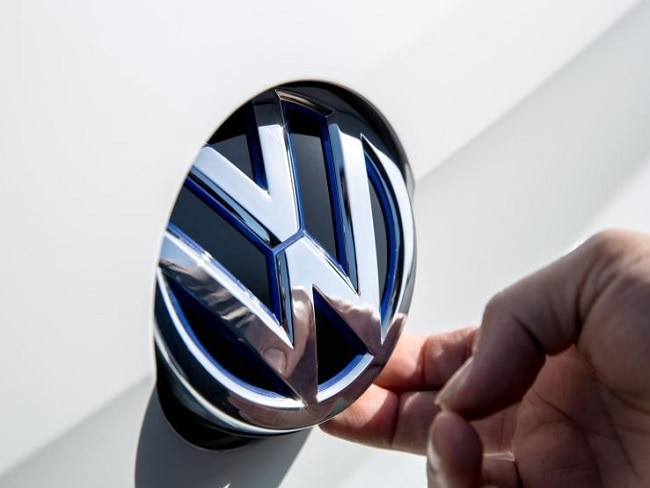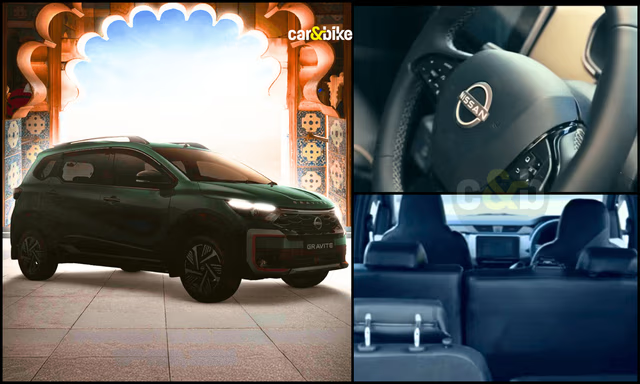Carmakers Get Inventive As Global Chip Crisis Bites

Whether buying computer chips directly from manufacturers, reconfiguring cars, or producing them with parts missing, automakers are having to get creative to cope with the global shortage of semiconductors.
The shortage, due to supply problems and a surge in demand for consumer electricals during the pandemic, has hit the auto industry hard, with millions of vehicles worldwide not being produced because important parts are missing.
With the problem lasting longer than initially expected, manufacturers including Daimler and Volkswagen have had to rethink production strategies.
Car manufacturers usually buy parts from major suppliers such as Bosch and Continental, which in turn buy from suppliers further down the chain.

McKinsey's Burkacky said carmakers should consider direct investments in production, or longer contracts with terms of more than 18 months.
In some cases that has led to a lack of transparency, said Ondrej Burkacky, a senior partner at McKinsey.
"There was the fallacy of thinking that you had a choice between two suppliers, but the truth is that they both had the chips made in the same foundry," he said.
That is now changing, according to Daimler Purchasing Manager Markus Schafer.
The German maker of Mercedes-Benz cars has set up a direct line of communication with all chip suppliers, including wafer producers in Taiwan, he said at the IAA auto show in September.
Volkswagen boss Herbert Diess speaks of "strategic partnerships" his company has entered into with manufacturers in Asia.
Chip suppliers need to be treated differently given their strategic importance to the industry, said Stefan Bratzel from the Center for Automotive Management.
"You have seen the problems that arise when you treat the chip companies like other suppliers and stop the calls," he said.
McKinsey's Burkacky said carmakers should consider direct investments in production, or longer contracts with terms of more than 18 months.
"Not much of that has been implemented yet," he added.

Volkswagen recently had to temporarily stop the production of electric cars in its Zwickau plant in Germany.
PRIORITISING
Some carmakers are stockpiling - or what BMW calls "hole shoring."
The whole car is built except for a missing part, and can then be completed relatively easily when it shows up.
Other automakers are also using this strategy. Sometimes vehicles are delivered without certain functions controlled by chips.
Semiconductors are also conserved for high-quality vehicles, like electric cars, while customers face even longer wait times for low-priced combustion engines.
That strategy is slowly reaching its limits. Volkswagen recently had to temporarily stop the production of electric cars in its Zwickau plant in Germany.
How well these coping strategies work is not yet clear.
"The bill will be presented in mid or late 2022, when you can see who came out of the crisis well and who did not make it so well," said McKinsey's Burkacky.
Latest News
 Jaiveer Mehra | Feb 9, 2026Tata Motors Inaugurates New Tamil Nadu Plant; Range Rover Evoque First Vehicle To Roll OutTata says that the plant will become the production base for next-gen vehicles from both Tata and its subsidiary JLR.1 min read
Jaiveer Mehra | Feb 9, 2026Tata Motors Inaugurates New Tamil Nadu Plant; Range Rover Evoque First Vehicle To Roll OutTata says that the plant will become the production base for next-gen vehicles from both Tata and its subsidiary JLR.1 min read car&bike Team | Feb 9, 2026New Cars Coming In February: New SUVs, MPV & EV Lined Up For LaunchJust like January, even February will see a good number new car launches and unveils. We list them for you1 min read
car&bike Team | Feb 9, 2026New Cars Coming In February: New SUVs, MPV & EV Lined Up For LaunchJust like January, even February will see a good number new car launches and unveils. We list them for you1 min read car&bike Team | Feb 9, 2026Hero Vida Ubex Electric Bike Design Patented In IndiaThe Vida Ubex will be the first electric motorcycle from the brand when launched.1 min read
car&bike Team | Feb 9, 2026Hero Vida Ubex Electric Bike Design Patented In IndiaThe Vida Ubex will be the first electric motorcycle from the brand when launched.1 min read car&bike Team | Feb 8, 2026Select Harley-Davidson Motorcycles To Attract Zero Duty Under Upcoming India-US FTA Interim Agreement: ReportPrimary beneficiaries are expected to include models in the 800 to 1600 cc segment2 mins read
car&bike Team | Feb 8, 2026Select Harley-Davidson Motorcycles To Attract Zero Duty Under Upcoming India-US FTA Interim Agreement: ReportPrimary beneficiaries are expected to include models in the 800 to 1600 cc segment2 mins read Jaiveer Mehra | Feb 8, 2026Tata Punch EV Facelift Revealed Ahead Of LaunchSole image of the updated EV previews some of the design updates ahead of its launch on February 20.1 min read
Jaiveer Mehra | Feb 8, 2026Tata Punch EV Facelift Revealed Ahead Of LaunchSole image of the updated EV previews some of the design updates ahead of its launch on February 20.1 min read Jafar Rizvi | Feb 7, 2026Nissan Gravite Interior Spotted Ahead Of February 17 DebutThe Gravite’s interior appears to carry over the familiar layout from the pre-facelift Renault Triber, with only minor updates expected.2 mins read
Jafar Rizvi | Feb 7, 2026Nissan Gravite Interior Spotted Ahead Of February 17 DebutThe Gravite’s interior appears to carry over the familiar layout from the pre-facelift Renault Triber, with only minor updates expected.2 mins read
 Bilal Firfiray | Feb 4, 2026Volkswagen Tayron R-Line Review: Sensible Flagship For IndiaVolkswagen has introduced a made-in-India flagship SUV that offers space, comfort, performance, and German driving finesse in a practical three-row package. But is the Tayron R-Line good enough?6 mins read
Bilal Firfiray | Feb 4, 2026Volkswagen Tayron R-Line Review: Sensible Flagship For IndiaVolkswagen has introduced a made-in-India flagship SUV that offers space, comfort, performance, and German driving finesse in a practical three-row package. But is the Tayron R-Line good enough?6 mins read Preetam Bora | Feb 2, 2026TVS NTorq 150 Road Test Review: Bigger, Better & More Efficient!We test the new TVS NTorq 150 out in the real world to get a sense of what it offers in terms of performance, dynamics and fuel economy.7 mins read
Preetam Bora | Feb 2, 2026TVS NTorq 150 Road Test Review: Bigger, Better & More Efficient!We test the new TVS NTorq 150 out in the real world to get a sense of what it offers in terms of performance, dynamics and fuel economy.7 mins read Bilal Firfiray | Jan 21, 2026Tata Punch Facelift Review: New Turbo Engine; Same Old SoulWith the update, the Tata Punch facelift retains its character of being a healthy runabout, which is perfect for Indian roads. But have these changes made it any better?7 mins read
Bilal Firfiray | Jan 21, 2026Tata Punch Facelift Review: New Turbo Engine; Same Old SoulWith the update, the Tata Punch facelift retains its character of being a healthy runabout, which is perfect for Indian roads. But have these changes made it any better?7 mins read Amaan Ahmed | Jan 17, 2026Bajaj Chetak C25 First Ride Review: Basic, Likeable E-Scooter For First-Time RidersThe Chetak C25, in quite a few ways, is poles apart from the larger and more powerful 30 and 35 Series models, but in its mannerisms, it is very much a Chetak.8 mins read
Amaan Ahmed | Jan 17, 2026Bajaj Chetak C25 First Ride Review: Basic, Likeable E-Scooter For First-Time RidersThe Chetak C25, in quite a few ways, is poles apart from the larger and more powerful 30 and 35 Series models, but in its mannerisms, it is very much a Chetak.8 mins read Bilal Firfiray | Jan 9, 2026Toyota Urban Cruiser Hyryder: 10,000 km Long-Term ReviewAfter spending over three months and 10,000 km with the Toyota Urban Cruiser Hyryder Hybrid, we were impressed by its real-world mileage, seamless hybrid, practical comfort, and Toyota reliability. Is it the best C-SUV then?5 mins read
Bilal Firfiray | Jan 9, 2026Toyota Urban Cruiser Hyryder: 10,000 km Long-Term ReviewAfter spending over three months and 10,000 km with the Toyota Urban Cruiser Hyryder Hybrid, we were impressed by its real-world mileage, seamless hybrid, practical comfort, and Toyota reliability. Is it the best C-SUV then?5 mins read

























































































































